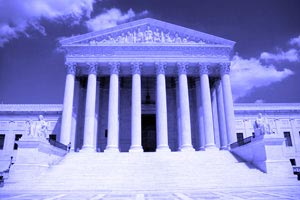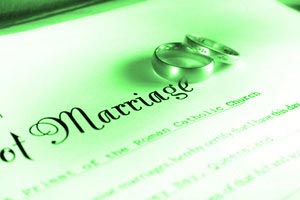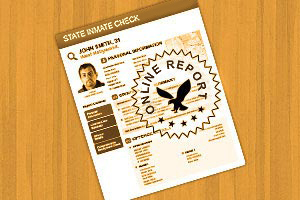Maryland Public Records
The mission of this website is to provide all Maryland citizens with the right to obtain, preview, and examine public records. This ensures that these residents are given access to such information, which is in accordance with the Maryland Public Information Act. This law specifies that all government information and records are presumed accessible to the public.
The goal of this website is to provide access to these public records in an expedient and concise manner, and without requiring personal information unless the requested information is ruled confidential by law, or court decision.
The information presented on this site contains criminal records, court records, vital records, and over 50 million transparent public records.
Are Maryland Records Public?
Most records generated or maintained by the government in Maryland are open to the general public. The Maryland Public Information Act (PIA) defines a public record as any record made, received, or used by a public agency while carrying out official business. Interested individuals can request and obtain copies of Maryland public records by reaching out to the right agency in charge of a record. A public record is not limited to written materials. According to the PIA, a public record may exist in various formats, such as photographs, photostats, films, recordings, microfilms, computerized records, tapes, maps, cards, drawings, and any other material used to store information. For instance, a public record may include e-mail messages printed or electronically stored.
What is Considered Public Information in Maryland?
Some examples of public records available in Maryland include:
- Maryland public court records
- Maryland bankruptcy records
- Public criminal records and criminal history records
- Public arrest records
- Public Maryland inmate records
- Public sex offender information
- Public property records
- Public Maryland death records
- Maryland public divorce records
- Public Maryland marriage records
- Public birth records
However, a public record does not include the personal matters and family engagements of any government official. A record seeker can make a Public Information Act request at any government agency (state, county, or municipal) in Maryland. This can be done by conducting a public data search at the relevant agency in charge of the record. Some records can be obtained through a free public data search, while some typically come at a cost.
How Do I Find Public Records in Maryland?
Interested persons who wish to find public records in Maryland must contact the public agency in charge of the desired records. Under the PIA, public agencies are mandated to provide access to public records upon request from any interested person. That said, there are no uniform requirements due to different agencies handling different documents. Some of the basic steps to obtain a public record in Maryland include:
- Identify the Type of Information or Record
The first step to obtaining a public record in Maryland is to identify the type of record. For instance, is the document a vital record or bankruptcy record? Interested persons who wish to obtain a particular record must provide relevant information that will aid the record search. In most cases, public agencies deny record requests due lack of clear description. Some of the information required from the requester about a record may include names of parties involved, case numbers, case type, date of filing, and more. - Contact the Public Agency in Charge
After identifying the type of record, interested persons must contact the public agency in charge. In most cases, different public agencies handle different records. For instance, the Maryland Judiciary handles and provides access to court cases in the state, the Maryland Department of Health provides access to vital records, and the Maryland Department of Public Safety and Correctional Services provides access to sex offender information. Therefore, contacting the right public agency is key to obtaining a public record in Maryland. - Create a Written Request
Some public agencies enable interested persons to obtain copies of their records using request forms. Although, other agencies may require requesters to submit their record requests in writing. Using a written request, a record custodian can easily track the progress of the requests as well as reduce confusion. Some of the information required in a written request include:- The full name of the requestor (and alias if any)
- The contact details of the requestor
- The type of record
- The date range for the record
- A comprehensive description of the record
- Names of parties involved
- The method of delivery for the record
- Any other relevant information to aid the record search
- Review and Submit the Request
Interested persons can review the information filled in their record request before submitting it to the record custodian. To submit a record request, interested persons may use any of the contact information provided by the public agency. In most cases, agencies allow in-person, fax, mail, and online requests. The contact information of a public agency is usually available on the contact us page.
Using Third-Party Sites to Find Public Records in Maryland
City Records
Public city records may also be accessible from third-party websites. These non-government platforms come with intuitive tools that allow for expansive searches. Record seekers may either opt to use these tools to search for a specific record or multiple records. However, users will need to provide enough information to assist with the search such as:
- The name of the subject involved in the record (subject must be older than 18 or not juvenile)
- The address of the requestor
- A case number or file number (if known)
- The location of the document or person involved
- The last known or current address of the registrant
Third-party sites are not sponsored by government agencies. Because of this, record availability and results may vary.
Public Records
Public records can also be accessed from third-party websites. These third-party public records aggregate websites offer search services that are non-geographically limited, making the search result expansive and typically straightforward. However, users will need to provide enough information to assist with the search, such as:
- The name of the subject involved in the record as long as the subject is not a juvenile
- The last known or location of the record subject
Third-party public records search websites are not government-sponsored services. Therefore, the availability and accuracy of results can vary.
How Do I Lookup Public Records for Free in Maryland?
A requester can look up public records for free in Maryland by inspecting the records or accessing online versions of the record. Although, obtaining public records for free depends on the type of record and the agency in charge of such records. To inspect a record, interested persons must contact the record custodian. Most times, agencies allow in-person requests that allow individuals to visit and inspect records during office hours.
Searching for online versions of a record is another way to look up public records for free in Maryland. Often than not, public agencies provide or maintain an online database where the public can access their records. For instance, the Maryland Department of Public Safety and Correctional Services provides online public access to the sex offender registry in the state. Interested persons can search for sex offender information in a particular area using the address, city, offender address type, zip, zip plus, and other search combination available on the database search. Additionally, a person can conduct a free public records search at any county clerk's office or county recorder’s office in Maryland to view documents. However, a low-cost fee may apply if they want to obtain a copy of such documents.
The state of Maryland began collecting public records in 1865, and these records typically cover all 23 counties. Over the last three decades, the standard of record keeping has been moving to the digital medium, meaning both government websites and third party organizations increasingly offer access to these records. Because of this availability and transparency, Maryland residents are offered the right to contribute to the commitment of the United States to be a fair and just society for all.




